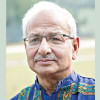The price of the vote must be reform

The political conversation in Bangladesh today is sharply divided between two dominant camps—those demanding immediate elections and those insisting that structural reform must come first. On one side, BNP leaders are calling for swift elections, warning against a return to authoritarian practices disguised in the language of "development," "reform," and "investment." On the other side, some argue that without deep institutional change, any election would merely replicate a broken system. They view the current government, born of a mass uprising, as having a unique mandate to pursue transformative reform before handing over power through a vote.
These two narratives, each grounded in real concerns, appear locked in conflict. But this binary framing—election first or reform first—misses the deeper challenge: how can we ensure that democratic transitions lead not just to a change in leadership, but to a transformation of the system itself?
As someone who believes in the urgency of restoring democratic consent, yet also sees the necessity of foundational reform, I propose a middle path. Elections should happen without delay, provided they take place within a framework that obliges the next government to implement a clear and enforceable reform agenda. These reforms must not be left to political convenience. They must be time-bound, mandatory, and tied to the government's continued legitimacy.
Bangladesh has seen too many instances of democratic decline cloaked in claims of national interest. The argument that elections can be delayed for the sake of stability, economic growth, or technical preparation is not new, and it is perilous. When unelected authority lingers under the pretence of reform, the principle of consent is gradually undermined. Democratic institutions grow brittle, public trust wanes, and technocratic efficiency replaces participatory governance. That is neither sustainable nor just.
At the same time, holding elections under an unreformed system risks repeating the very dysfunctions that provoked the current crisis. Flawed electoral institutions, unchecked executive power, and the absence of meaningful decentralisation have all contributed to a political culture in which elections settle little and reform remains elusive. We cannot afford to repeat that pattern.
To understand the stakes, we must revisit the unfulfilled promises of Bangladesh's last major democratic transition: the post-1990 period. The mass uprising that ousted HM Ershad marked a decisive rejection of authoritarianism and a call for genuine democracy. But while elections followed, deeper reforms were quietly shelved. Electoral processes remained vulnerable, political power remained overly centralised, and democratic norms steadily eroded. The spirit of that movement—captured in slogans like "let democracy be free"—was honoured in form but not in substance.
That historical memory informs the scepticism many feel today. There is a well-founded fear that even if elections are held and power changes hands, reforms will once again be delayed, diluted, or dismissed. The burden is now on us to ensure that does not happen.
So how do we break this cycle? My proposal is simple but, I believe, effective: hold elections soon, but within a structure that binds the next government to a reform mandate. This can be achieved in one of two ways.
First, a pre-election constitutional amendment could be enacted, specifying a timeline—perhaps six to 12 months—within which essential reforms must be completed. These may include restructuring the Election Commission, strengthening judicial independence, placing checks on executive power, and ensuring protections for civil liberties and political opposition. Failure to comply would place the government in breach of constitutional responsibility, triggering consequences such as judicial intervention or the possibility of early elections.
Secondly, if constitutional amendment is not feasible before the vote, a broad-based political accord could be negotiated and publicly formalised. This agreement, endorsed by major parties and civil society, would bind the next government to a detailed reform roadmap monitored by an independent oversight body. While not legally binding in the same way as a constitutional provision, such an accord could be legitimised through public scrutiny and, if necessary, international recognition.
Either model would shift reform from being a matter of political discretion to a condition of democratic governance. It would also introduce a principle that is increasingly recognised in global democratic transitions: conditional legitimacy. In many contexts—post-apartheid South Africa, post-uprising Tunisia, and post-monarchy Nepal—transitional governments were required to enact reforms as a condition of their authority. These examples demonstrate that legitimacy is not merely a function of electoral success; it can and should be tied to the fulfilment of constitutional obligations.
In Bangladesh, this model offers a path forward that neither dismisses the demand for elections nor ignores the urgency of reform. It meets the opposition's call for democratic legitimacy while addressing the concerns of those who fear another empty transition.
This approach also calls for a deeper cultural transformation. It asks citizens to see themselves not just as voters who participate periodically, but as guardians of a constitutional project that must be renewed and defended. It challenges political leaders to abandon the winner-takes-all mentality that has hollowed out our institutions. A government elected under this framework would be bound not only by its promises, but by structural commitments embedded in law or public accord. There would be no excuse for delay and no room for betrayal.
Some may dismiss this proposal as overly ambitious or politically unrealistic. But in truth, the real illusion is the belief that elections alone—without binding reform—can resolve our current crisis. Equally naive is the notion that unelected authority, however well-intentioned, can govern indefinitely without undermining the very foundations of democratic legitimacy.
Realism today demands more than resignation to broken cycles. It requires imagination anchored in accountability. And more than that, it demands a politics in which outcomes are tied to commitments, and power is matched by responsibility. If we are to be realists in the best sense, then we must refuse both cynicism and complacency.
The real danger now is not that we will choose the wrong side in the "election versus reform" debate. It is that we will accept the debate on its current, limiting terms. This false binary must be rejected. We need both: elections that restore the people's voice, and reforms that prevent its silencing in the future.
What is needed most urgently is a credible mechanism—constitutional, political, or both—that ensures the next government, whoever forms it, cannot simply walk away from its obligations once in office. The days of promising reform only to abandon it after securing power must come to an end.
Dr Kazi ASM Nurul Huda is associate professor of philosophy at the University of Dhaka and adjunct faculty at North South University (NSU). He can be reached at [email protected].
Views expressed in this article are the author's own.
Follow The Daily Star Opinion on Facebook for the latest opinions, commentaries and analyses by experts and professionals. To contribute your article or letter to The Daily Star Opinion, see our guidelines for submission.


 For all latest news, follow The Daily Star's Google News channel.
For all latest news, follow The Daily Star's Google News channel. 









Comments